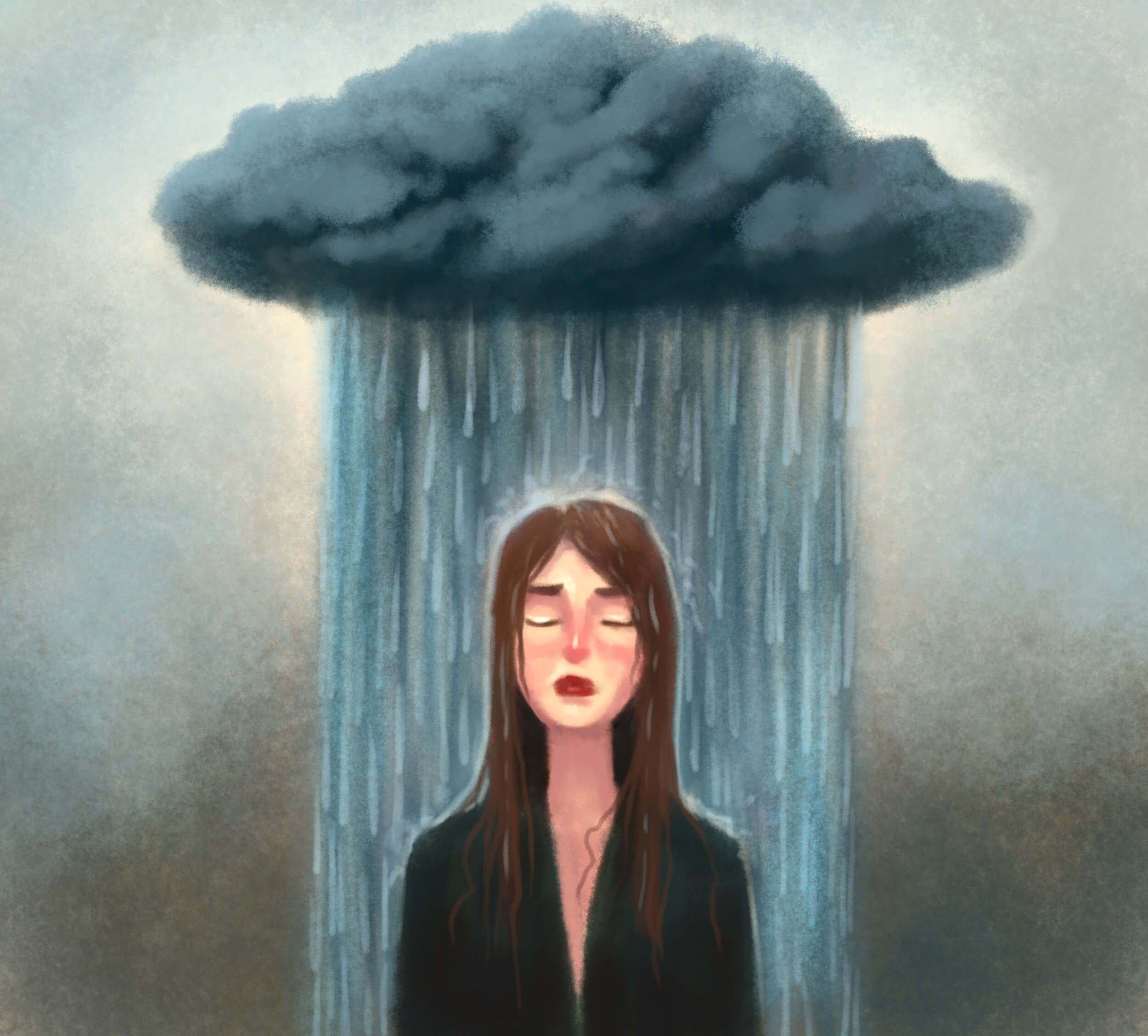Some days feel heavier than others, but when exhaustion doesn’t go away, it might be more than just being tired. Emotional exhaustion isn’t just about feeling drained—it’s a deep mental and physical fatigue that lingers, no matter how much rest you get.
At first, it may seem like ordinary stress, but over time, it chips away at energy, motivation, and even the ability to think clearly. Simple tasks become overwhelming, frustration builds faster, and even enjoyable things start feeling like a chore. Many people don’t recognize what’s happening until their body forces them to slow down with headaches, sleep problems, or constant tension.
Pushing through only makes things worse. Recognizing the signs of emotional exhaustion early can prevent full burnout and help restore balance. Paying attention to what your body and mind are telling you is the first step toward feeling better.
What is Emotional Exhaustion?
Stress is a normal part of life, but when it never seems to stop, it can take a serious toll. Emotional exhaustion happens when stress builds up for too long, leaving a person mentally and physically drained. Unlike regular tiredness, rest doesn’t seem to help, and even small tasks feel overwhelming.
Losing motivation, feeling emotionally numb, or struggling to focus are all common signs. Some people notice physical symptoms too—headaches, muscle tension, or trouble sleeping. It’s more than just a rough week; it’s a long-term state of exhaustion that affects both the mind and body.
Work pressure, personal struggles, or constantly being there for others without a break can all contribute. Over time, emotional exhaustion makes it harder to enjoy life, connect with others, or even handle daily responsibilities. Recognizing it early can help prevent full burnout and make recovery easier.
10 Signs You’re Struggling With Emotional Exhaustion
Recognizing the early signs of emotional exhaustion can help prevent burnout from taking over your life—here’s what to watch for.
1. Constant Fatigue That Rest Won’t Fix
Waking up tired even after a full night’s sleep is a major red flag. Emotional exhaustion drains energy at a deeper level, making rest feel useless. No matter how many naps you take or how early you go to bed, the exhaustion lingers. Daily tasks feel harder, and getting through the day takes twice the effort.
Physical tiredness is one thing, but this kind of exhaustion seeps into motivation and focus too. Feeling mentally wiped out before the day even begins is a sign that stress has been taking a toll for far too long.
2. Lack of Motivation and Interest
Things that once brought excitement now feel like chores. Work, hobbies, and even simple tasks like making dinner start to feel overwhelming. The effort it takes to get things done seems way more than what it’s worth.
When emotional exhaustion sets in, even enjoyable activities lose their appeal. It’s not about being lazy—it’s about having nothing left to give. The brain struggles to find the energy to care, making procrastination or avoidance seem like the only option.
3. Increased Irritability and Short Temper
Patience runs thin, and small annoyances start feeling like big problems. Things that wouldn’t have bothered you before—like a noisy room, a slow internet connection, or a simple question—suddenly feel unbearable.
Frustration builds up quickly, often spilling over into conversations with family, friends, or coworkers. Emotional exhaustion makes emotions harder to regulate, which means snapping at people or feeling irritated for no clear reason happens more often.
4. Frequent Feelings of Hopelessness or Helplessness
Life starts to feel like an uphill battle with no end in sight. A sense of being stuck, trapped, or powerless creeps in, making it hard to believe that things will ever improve.
When emotional exhaustion sets in, even small challenges can seem impossible to overcome. The usual problem-solving mindset disappears, replaced by a feeling of defeat. This isn’t just being tired—it’s mental and emotional burnout that makes even the simplest solutions feel out of reach.
5. Trouble Concentrating and Memory Issues
Simple tasks take longer because the brain refuses to cooperate. Reading the same sentence multiple times, forgetting what you were saying mid-conversation, or walking into a room and not remembering why—these are all signs of brain fog linked to emotional exhaustion.
Focusing on work, school, or personal responsibilities becomes an uphill battle. It’s not just forgetfulness; it’s the mental fatigue that makes it nearly impossible to stay engaged. Even making basic decisions can feel like too much effort.
6. Changes in Sleep Patterns
Sleep becomes unpredictable—either too much or not enough. Some people struggle to fall asleep because their mind won’t stop racing, while others can’t get out of bed because exhaustion feels never-ending.
Even when sleep happens, it doesn’t feel refreshing. Emotional exhaustion makes it difficult to wake up feeling rested, no matter how many hours were spent in bed. Restless nights, waking up frequently, or feeling groggy all day are common struggles.
7. Physical Symptoms Like Headaches or Stomach Issues
The body reacts to emotional stress in unexpected ways. Frequent headaches, muscle tension, stomach problems, or even unexplained aches and pains are all signs that emotional exhaustion is taking a toll.
Stress hormones affect digestion, muscle tightness, and overall well-being. Some people develop chronic tension in their shoulders and neck, while others experience nausea or changes in appetite. These symptoms often don’t have a clear medical cause, but they don’t go away until stress levels improve.
8. Social Withdrawal and Isolation
Spending time with people starts feeling more like work than fun. Conversations seem draining, and making plans feels exhausting. Many people going through emotional exhaustion start canceling outings, avoiding calls, or isolating themselves without realizing it.
It’s not that they don’t care—it’s that they don’t have the energy to engage. Even responding to texts or answering a simple question can feel like too much effort. Emotional fatigue makes it easier to pull away, even from the people who could offer support.
9. Cynicism and Detachment
A negative outlook starts creeping in, making everything seem pointless or frustrating. Work feels meaningless, relationships feel distant, and enthusiasm for the future fades.
This isn’t just a bad mood—it’s a defense mechanism. When emotional exhaustion reaches its peak, detachment sets in as a way to cope. Caring too much hurts, so the brain starts shutting down emotions. The problem is that this detachment doesn’t just block out stress; it also numbs happiness, excitement, and connection.
10. Increased Anxiety or Emotional Sensitivity
Little things feel overwhelming, and emotions hit harder than usual. A stressful email, a last-minute change in plans, or a simple disagreement can feel like the end of the world.
Emotional exhaustion makes it harder to regulate feelings, leading to intense reactions to situations that normally wouldn’t be a big deal. Some people experience heightened anxiety, while others find themselves crying over things they wouldn’t have before. It’s a sign that stress has built up for too long and needs to be addressed.
How to Recover from Emotional Exhaustion
Getting past emotional exhaustion doesn’t happen overnight, but small steps can make a big difference. The first priority is rest and recovery—not just sleep, but real breaks from stress. Setting boundaries, saying no to extra responsibilities, and taking time for yourself can help lighten the mental load.
Emotions need attention too. Addressing mental well-being through therapy, journaling, or even talking to someone you trust can help process overwhelming feelings. Burnout isn’t a sign of failure, and showing yourself kindness during recovery is important.
Daily habits play a role as well. Making lifestyle adjustments like eating balanced meals, staying active, and improving sleep routines can help restore energy. Cutting back on caffeine, alcohol, and screen time before bed can also support recovery.
Support from others can ease the burden. Reaching out to friends, family, or a support group provides comfort and perspective. Isolation can make emotional exhaustion worse, so staying connected—even in small ways—can help bring relief.
Final Thoughts on Recognizing Emotional Exhaustion
Burnout doesn’t happen overnight—it builds up slowly until everything feels overwhelming. Emotional exhaustion can sneak in without warning, making even small tasks feel impossible. The good news is that recognizing the early signs can help prevent it from taking over your life.
Simple changes, like setting boundaries, getting enough rest, and making time for things you enjoy, can make a real difference. Self-care isn’t a luxury; it’s a necessity, especially when stress levels are high. Small habits, like eating well and staying active, help rebuild energy over time.
Some days will feel harder than others, and that’s okay. If exhaustion lingers or starts affecting daily life, reaching out for professional support can provide real solutions. Emotional exhaustion doesn’t have to be permanent—taking steps to recover now can help restore balance and make life feel manageable again.















